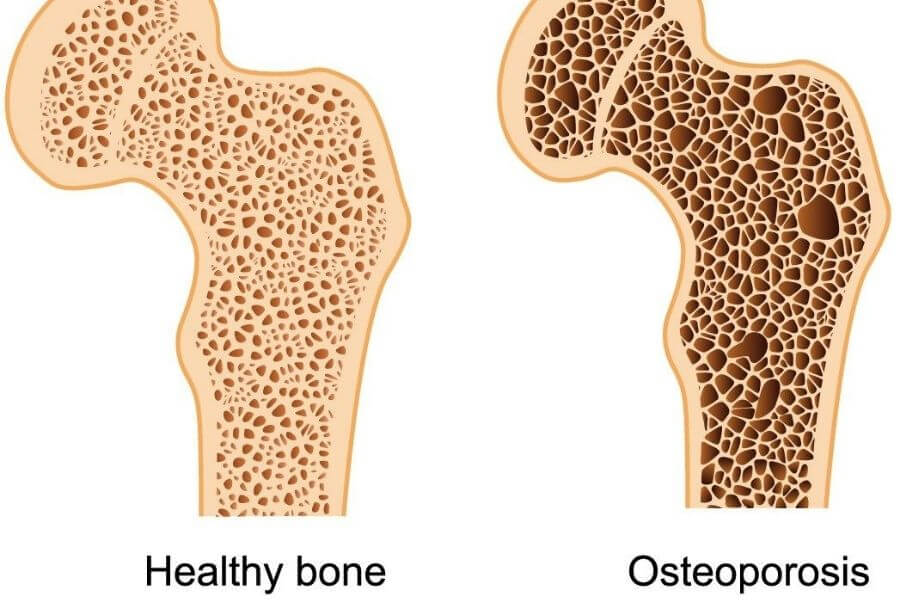As we grow older adequate, nutrition is of utmost importance for our daily activities, vitality in the body, functional independence, and to prevent the onset of diseases and fight your old age. Intake of calories, vitamins, and minerals change as per our age, nutritional requirement, and disease condition. Food preferences such as a high fiber diet, less sugar and salt diet, restricting food containing saturated and trans fat, balancing the calorie intake, and diversifying the food you consume are essential for staying fit and healthy as you age.
Geriatric nutrition is a stream of science which is a specialized field; it focuses on improving health and helps in making old age easier and more healthy and happy. Timely interventions and healthy habits can make our aging process more knowledgeable and healthier.
The Aging Process
Aging in simple terms means growing older. It is a continuous and gradual process. Mostly after 65 years of age is when we start showing the early signs of aging as the normal bodily functions start slowing down. Physical changes become noticeable; for example, grey hair/thinning of hair, lines, and wrinkles, dry patchy skin, skin becomes loose and sags along with problems, such as lack of sleep, stooped posture, pain in joints, lower immunity, digestion, etc. are noticeable. It is a natural transformation that everyone has to undergo and cannot avoid.
Our senses are affected as we age, and our taste, hearing, smelling, and sense of touch start diminishing. We experience changes in our nervous system and bodily functions, susceptibility to infections, and lower metabolic rate, and due to the lack/reduction of physical activity, our calorie requirement also becomes significantly less. Vitamin deficiencies, constipation, flatulence (gas problem), loss of teeth, etc. are common problems faced by older people. It also depends on the food habits and lifestyle of a person, genes or heredity factors, care taken throughout our lifetime, and exposure to external factors such as pollution and toxins in the environment.
Nutrients Required During Old Age
Nutrition plays an essential part in the quality of everyday life in older people. “We are what we eat” is exceptionally accurate. What we feed the body gives us the desired output these days.
A healthy diet consisting of fiber (vegetables, whole grains, fruits, etc.), calcium (low-fat milk products), and Vitamin B12 ( non-vegetarian foods) along with a healthy walk exposed to sun rays for Vitamin D helps to complete the daily requirements of the body.
Drinking healthy liquids like fresh unsweetened fresh juices with fiber, coconut water, soups along with adequate intake of water helps to keep dehydration away and helps in effective kidney functioning, and maintains the body temperature. Sweets, fatty food, along with junk food items and foods heavy to digest should be restricted.
Aging affects entire body cells, organs, and tissues. Growing old is full of its share of problems, both external and internal. Weakened eyesight, loss of hearing, frequency in urination, less effective kidneys, and lower metabolism are the common issues faced by older people. Depression and loneliness also lead to contribute to an increase in ailments related to various problems. Due to a weak immune system and a lack of physical activity, many chronic health problems happen to older people. Some of the issues faced are given below:-
1. Obesity

It’s the most common problem faced by older people, due to a slow metabolic rate and a lack of physical activity. Burning the daily calories becomes difficult, as exercising is impossible due to age-related problems, leading to increased weight. It leads to low self-confidence, along with several heart and respiratory diseases. Old age is synonymous with metabolism problems, which are primarily accountable for weight problems in the elderly. Eating food in amounts just required by the body is the key to preventing more weight gain and its related issues.
2. Osteoporosis

Loss/decrease of bone density and mass is termed as osteoporosis. It’s more common in women, especially after menopause. It is the natural wear and tear of the bones. Our bones get weaker and brittle due to aging, and factors such as diet and deficiencies accelerate osteoporosis disease. Consumption of calcium and protein-rich foods such as milk, curds, buttermilk, ragi, green leafy vegetables, non-vegetarian foods, almonds, walnuts, dry figs, til seeds, etc. should be done to ensure meeting your increased requirement.
3. Constipation
Constipation is not a disease. Fewer bowel movements or difficulty in passing stool is a common problem of the elderly. The natural contraction of the colon is disturbed because of aging. Drinking lots of water, having a fiber-rich diet, and little to moderate physical activity all help in treating constipation naturally. In severe cases, stimulants, stool softeners, and enemas/suppositories may also be prescribed by your physician to aid in bowel movements.
4. Neurological Dysfunctions
These are common with older adults. They mostly occur due to the changes in the brain as we age. Geriatric neurology is called the neurology of aging. Alzheimer’s, Parkinson’s, Neuropathy, strokes, etc. are results of neurological aging dysfunctions. A healthy and balanced diet and cutting out risk factors such as smoking, lack of exercise, high cholesterol, high blood pressure, etc. help in controlling and dealing with neurological issues.
Exercising In Old Age

It is the best way to stay fit and healthy for everyone, right from children and adults to older people. Exercise keeps us fit and active, improves our immune system, and confidence, improves our quality of life, and prevents many heart diseases. It doesn’t need to be strenuous or rigorous. Our body functioning and the impact of illness improve due to regular exercise.
Yoga, pranayam, and walking are considered the ideal and best activities, especially for older people, where the chances of getting hurt or injuring oneself are the least. Similarly, swimming is another safe exercise, which doesn’t put too much pressure on the joints. Besides these, aerobics, cycling, strength, and flexibility exercise can be practiced depending on the fitness and endurance level under proper guidance only
Importance And Benefits Of Exercising
- Increases life expectancy
- Reduces anxiety and depression and helps in overall well being
- Improves stamina and strength in older people
- Reduces the risk of arthritis and controls swelling and stiffness of joints
- Helps in lowering blood pressure
- Keeps your bones healthy and reduces the risk of fracturing bones due to falling
- Helps in preventing/delaying diseases
- It improves overall confidence and happiness
Dentures During Old Age
Oral health is also very important in older people and, if not treated at the right time, can lead to a geriatric denture, which directly affects nutritional intake. Dentures are a replacement of natural teeth and are also called ‘plates.’
Good health and nutrition of older patients depend on the successful wearing of dentures. Initially, it is uncomfortable to resume food habits with dentures as it leads to improper swallowing and choking. Due to its fragile nature, dentures need to be cared for very carefully. Cleaning them every night by brushing them and soaking them in their solution should become a daily self-care ritual that removes bacteria or any food particles and prevents infection or gum irritation. Visiting a dentist regularly is extremely important.
Affected Nutrition
The sense of taste diminishes with aging. Bad habits like smoking, drinking, too much caffeine, medications, and bad oral hygiene contribute to it. Difficulty in chewing and swallowing contributes to bad eating habits and incomplete nutrition. Many times selected food items are eliminated from the diet, and easy-to-eat food is preferred. They may also suppress or harm appetite. Many times the denture wearer suffers from sores and bruises and also infection due to ill-fitting dentures.
Sometimes a person may go into depression as they miss out on the feel and touch of food due to the dentures. Laziness and unhealthy maintenance of dentures may lead to additional oral health problems. Malnutrition is the typical outcome of people wearing dentures due to their inability to chew/break down healthy food. Healthy foods such as nuts, whole fruits, salads, etc. can hardly be consumed or improperly consumed, leading to improper digestion.
Soft Diet For Dentures
After the insertion of dentures, liquid food items are prescribed at the beginning like vegetable and fruit juices, a glass of milk, soups, and pureed meat items, etc. Care has to be taken not to provide too hot food items as due to the dentures, the food temperature is not easily judged and may lead to burning or scalding in the mouth.
Soft foods such as seedless and skinless fruits and steamed or boiled vegetables, soft rice, scrambled egg, and thick soups are introduced. After a week, regular solid food items made into tiny pieces for easy digestion can be slowly introduced. You can stick to a soft diet containing your regular daily menu, and altered inconsistency to maintain your nutrition.
Stay Fit, Stay Young with Right Diet and Nutrition. Happy Eating!







